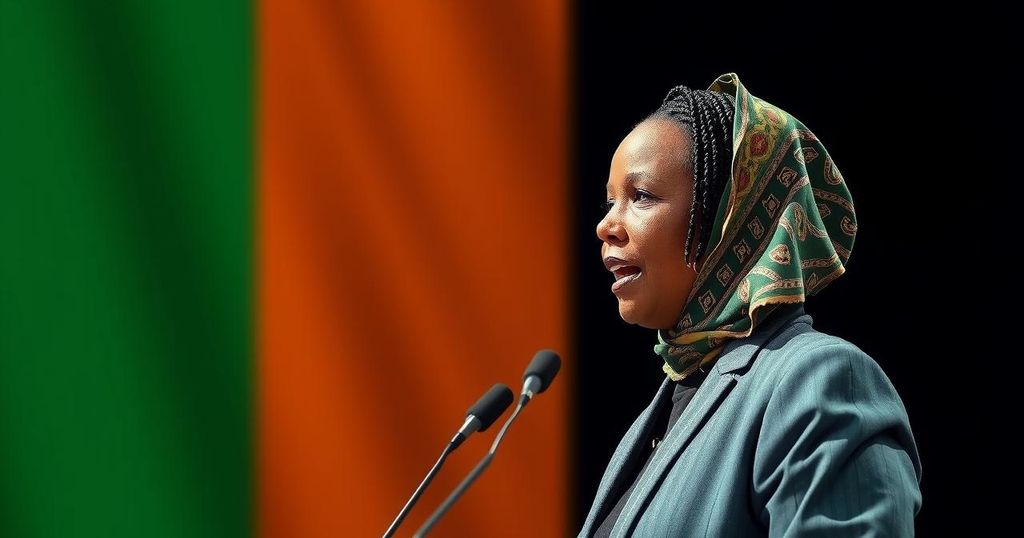Namibia Votes for President and the Potential for Its First Female Leader

Namibia’s presidential election on November 27, 2024, features Netumbo Nandi-Ndaitwah as a significant candidate aiming to become the nation’s first female leader. She faces challenges due to rising unemployment and economic dissatisfaction among the youth, reflecting broader regional political shifts. Approximately 1.4 million Namibians are registered to vote, with economic issues and women’s rights likely to influence their decisions.
On November 27, 2024, Namibians cast their votes in a crucial presidential election, keenly observing the aspirations for the nation’s first female leader. Netumbo Nandi-Ndaitwah, the 72-year-old vice president and candidate from the ruling South West Africa People’s Organization (SWAPO), stands as a prominent contender. Earlier results from special voting among citizens residing overseas and members of the armed forces have positioned her favorably ahead of the election. However, SWAPO’s governance, stretched over 34 years since Namibia’s independence, now faces intensified scrutiny amidst rising unemployment and economic hardship, particularly impacting the youth.
The backdrop of this election is underscored by a wave of political changes across Africa, where voter sentiments have shifted significantly in recent months. Recent electoral upheavals in neighboring nations highlight the potential for dramatic changes within the political landscape of Namibia as well. Approximately 1.4 million citizens are registered to vote, tasked with choosing both the presidency and parliamentary members in a country with a population of just over 3 million. Additionally, with a high young unemployment rate of 20%, economic issues are likely to dominate voters’ concerns this election cycle.
While Nandi-Ndaitwah presents a hopeful scenario for female leadership, her party’s diminished popularity poses challenges. During the previous elections, SWAPO received its lowest share of the vote in history. Critics question Nandi-Ndaitwah’s ambitions to generate over 500,000 jobs with a proposed budget of 85 billion Namibian dollars in the next five years, deeming them overly optimistic. Moreover, issues pertaining to women’s rights, including reproductive health, equal remuneration, and accessible healthcare, are anticipated to resonate strongly with the electorate as they make their decisions.
Namibia entered independence in 1990 and has since been governed by SWAPO, the prominent liberation party. The country grapples with considerable economic challenges, including a youth unemployment rate of approximately 20%. The potential election of Netumbo Nandi-Ndaitwah as president would mark a significant milestone in both Namibian and African political history, given that female representation in leadership roles remains limited across the continent. The political environment is currently tumultuous, with citizens increasingly demanding accountability and reforms from longstanding political parties.
The upcoming presidential election in Namibia presents both a challenge and an opportunity, particularly for the ruling SWAPO party. With changing voter expectations and growing frustration over economic conditions, the election results could signal a transformative shift in governance. Should Netumbo Nandi-Ndaitwah succeed, Namibia could become a frontrunner for female political leadership in Africa, addressing critical issues such as youth unemployment and women’s rights. Conversely, the election will also reflect the electorate’s readiness for change amid an evolving political landscape.
Original Source: apnews.com







